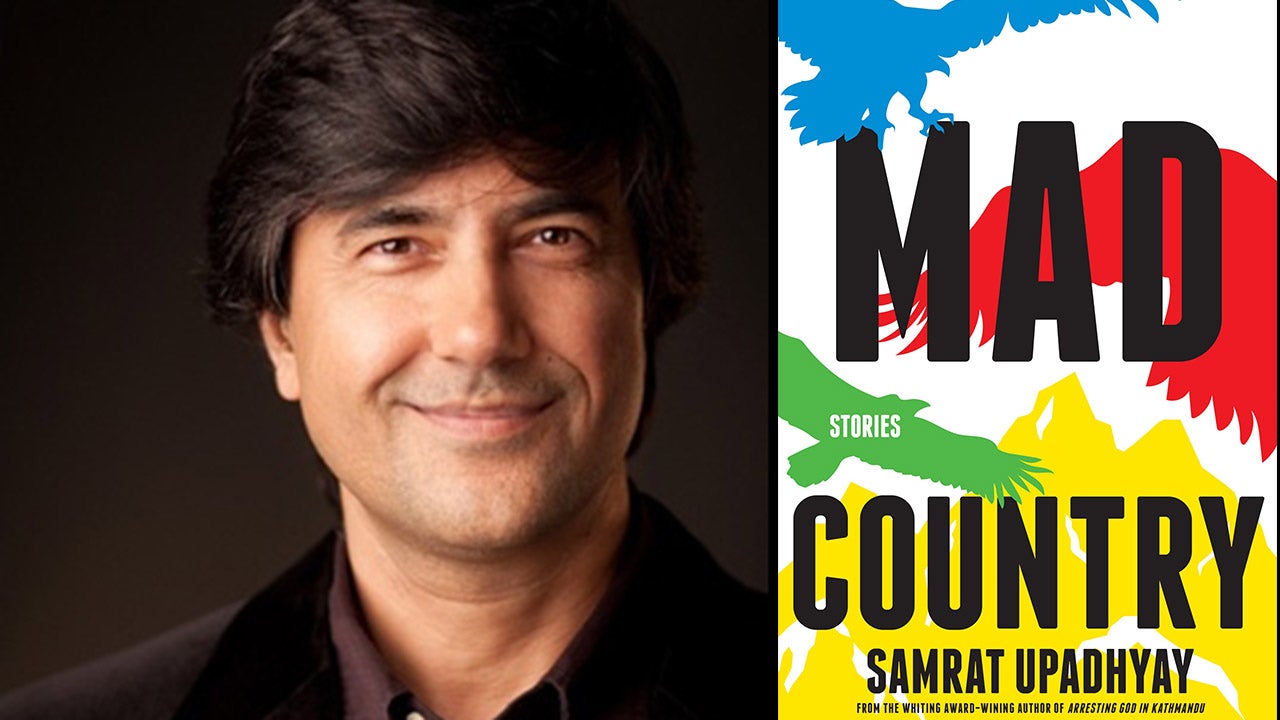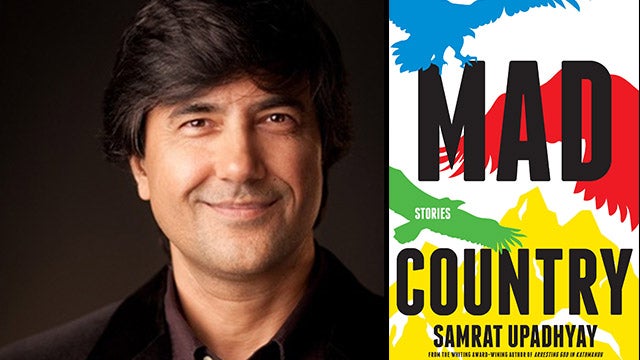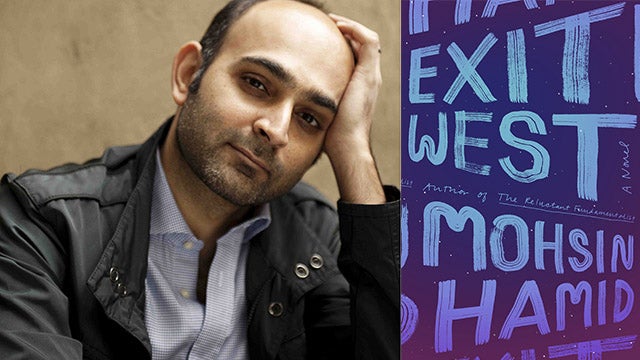
Aspen Words will confer the inaugural $35,000 Aspen Words Literary Prize this year, recognizing a work of fiction with social impact. Twenty nominees are still in the running, and the diverse list includes 12 novels and eight short story collections covering a variety of critical issues and published by an array of presses. While the jury works on narrowing this list down to five finalists and a winner, Aspen Words chatted with the nominees about their work, the importance of fiction in understanding contemporary issues, and the books that have influenced them most.
Samrat Upadhyay’s short story collection Mad Country features tales of protest, imprisonment, and otherness set across Nepal and the US. The Nepalese writer has published two other short story collections, Arresting God in Kathmandu and The Royal Ghosts, along with a trio of novels — The Guru of Love, Buddha’s Orphans, and The City Son.
Why did you write Mad Country?
There was no single moment when I decided to write the book, or a particular reason behind it. I am a fairly instinctual (and impulsive) writer. I write when a particular image or a character or a situation imposes itself upon me. Several of the stories in Mad Country came to be written that way. In the title story, I had the picture of a woman who suffers a Kafkaesque moment when she’s abruptly jailed. In that story I was interested in what happens to people when all their identities are stripped away. Similarly in “Beggar Boy” I thought of a Richie Rich type of character who deliberately chooses to become a beggar as a way of understanding the pain he’s experienced at being abandoned by his mother. Yet another story was my attempt to understand racial tensions in America from the perspective of a recent immigrant who brings his own personal baggage into it. By the time I finished a draft of the collection, I knew that I was writing about madness as a state of mind, both in the landscape of my country of origin, Nepal, and, given the recent political events, in my country of adoption, the USA.
What was the most challenging thing about writing this book?
On a day-to-day level, writing and rewriting a story until you get “the words right,” as Hemingway put it, is the most challenging aspect of the short story form. And the stories in this book were no different: Some of them underwent wholescale transformations before I felt that they were ready to go into a book. Seeing connections among the stories, and how they fit together as a collection, was also a challenging enterprise. In this regard, a good editor is invaluable, and I had an fabulous editor in Mark Doten at the Soho Press.
How might fiction help us to explore contemporary issues?
Fiction can turn a critical eye on contemporary issues. Its criticism, however, is not ordinary but extraordinary: It’s capable of taking us and our readers beyond our cultural, political, and ideological lenses. In other words, fiction doesn’t help us explore contemporary issues by taking particular stances but by constantly interrogating our stances. The best way that fiction can help us explore the burning questions of our times is by questioning some of our deepest-held beliefs.
What was an early experience where you learned that language had power?
When I was in fourth grade, I wrote a poem, in Nepali, about my neighborhood, which at that time was populated with my close and distant relatives. My poem was about how each household was distinct, and how each did something special for me. It was a child’s perspective, but when I read the poem to my neighbors, the awe on their faces told me that my words were capable of making them feel. In many ways I think I still write for that effect: to make my readers feel certain things. But then, didn’t someone already say that words can move mountains?


